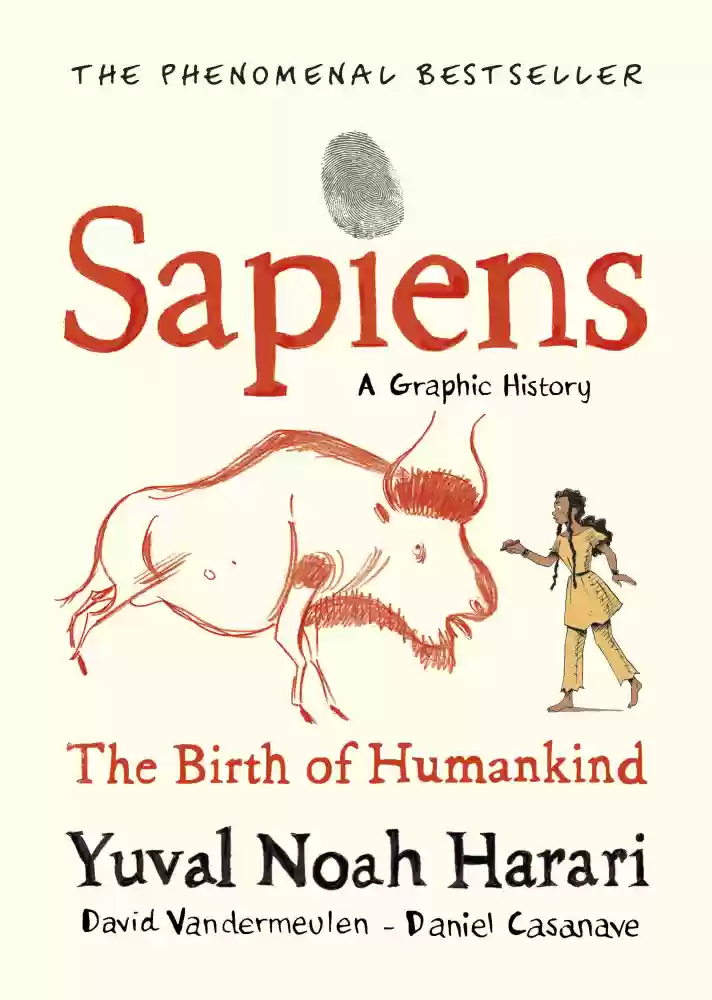
Original Title
Sapiens: A Brief History of Humankind
Subject & College
Publish Date
2011-01-01
Published Year
2011
Publisher, Place
Total Pages
498
ISBN 13
9780099590088
Format
Paperback
Country
Tel Aviv, Israel
Language
English
Readers Feedback
Sapiens: A Brief History of Humankind
(Review by CHRISTU DHAS Y St. Vincent College Pune) Why Us, Why Intelligence, Why Religion, Why Money, Why Nation? Yuval Noah Harari’s Sapiens: A Brief...Read More
CHRISTU DHAS Y
Sapiens: A Brief History of Humankind
(Review by CHRISTU DHAS Y St. Vincent College Pune) Why Us, Why Intelligence, Why Religion, Why Money, Why Nation?
Yuval Noah Harari’s Sapiens: A Brief History of Humankind is a profound exploration of humanity’s journey from humble beginnings as foragers and hunter-gatherers to becoming the rulers of the planet. Harari masterfully charts this transformation, delving into the pivotal moments that shaped our species—from the dawn of human intelligence to the present day. With a compelling narrative and an interdisciplinary approach, Harari invites readers to reconsider everything they know about human history.
As a historian and professor, Harari blends anthropology, biology, and economics to examine how Homo sapiens rose to global dominance. The book has received international acclaim, including the National Library of China’s Wenjin Book Award for the best book published in 2014, and has been translated into numerous languages. This thought-provoking work challenges conventional views of history, society, and human nature, making it a must-read for those curious about the forces that shape our world.
Harari’s Sapiens is divided into four sections, each examining a transformative period in human history: the Cognitive Revolution, the Agricultural Revolution, the Unification of Humankind, and the Scientific Revolution. Each section sheds light on how these pivotal phases influenced our societies, beliefs, and identities.
The Cognitive Revolution, occurring about 70,000 years ago, marked the emergence of language and abstract thinking, enabling cooperation through shared myths. The Agricultural Revolution, which began around 10,000 years ago, reshaped human societies by transitioning from foraging to farming, often at the cost of individual well-being. The Unification of Humankind explores how shared systems like religion, empires, and trade brought diverse cultures together, creating larger and more interconnected societies. Finally, the Scientific Revolution, beginning about 500 years ago, investigates humanity’s pursuit of knowledge, technological advancements, and the ability to reshape the environment and even ourselves.
One of Harari’s greatest strengths is his ability to weave science, history, and philosophy into a cohesive and accessible narrative. His central argument—that shared myths such as religion, money, and nations drive human cooperation—is both provocative and insightful, reframing how we view the foundations of modern society. The book’s interdisciplinary approach offers readers a comprehensive understanding of human history and its implications for the future.
However, the ambitious scope of Sapiens occasionally leads to oversimplification. For instance, Harari’s characterization of the Agricultural Revolution as “history’s biggest fraud” is a bold claim that overlooks the nuanced benefits and challenges of agricultural societies. His deterministic tone, particularly when discussing the future of humanity, can feel unsettling. Speculative ideas—such as Homo sapiens evolving into Homo deus (Human God) through genetic engineering and artificial intelligence—veer into science fiction territory, sometimes without sufficient grounding in current scientific realities.
Harari’s global narrative also leans heavily on Western paradigms, occasionally sidelining non-Western perspectives and contributions. For example, his discussion of capitalism focuses predominantly on Europe and the United States, giving limited attention to alternative economic systems or resistance movements in other regions. This oversight diminishes the richness of a truly global history.
Despite these criticisms, Harari’s writing is engaging and infused with wit, anecdotes, and thought-provoking insights. His ability to provoke reflection on humanity’s progress and its consequences is undeniable, making Sapiens a deeply impactful read.
Reading Sapiens was an enlightening and transformative experience. It made me reconsider how deeply our lives are shaped by constructs we often take for granted, such as religion, money, and nations. One of the aspects I particularly appreciated was Harari’s inclusion of women in his examples of humanity, deviating from the conventional male-centric narrative. While the book critiques religion, economics, and nation-building, Harari’s tone is nuanced and euphemistic, encouraging readers to reflect without feeling alienated.
Though certain parts of the book felt dense, the overall narrative was captivating. Harari’s ability to connect past, present, and future is remarkable, leaving me with a deeper appreciation for the complexity of human history.
Sapiens is a masterful synthesis of human history, offering fresh perspectives on our shared past and potential futures. While the book occasionally sacrifices depth for breadth, its thought-provoking arguments and accessible prose make it a valuable read. Harari’s insights challenge readers to question their assumptions about humanity and the forces that shape it. Whether you are a history enthusiast, philosopher, or simply curious about the human story, Sapiens is a book that will leave a lasting impression.
